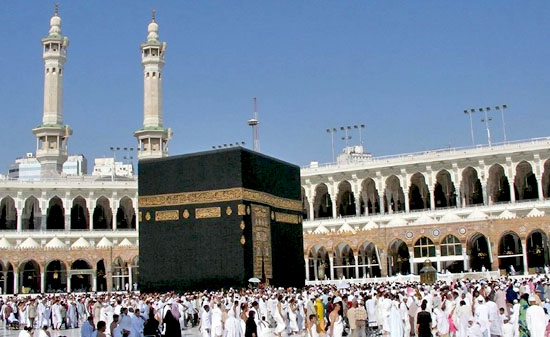
Jeddah, Apr 19: Makkah is bracing for the increased number of visitors and pilgrims in the holy month of Ramadan. Authorities including the Presidency of the Grand Mosque and Prophet’s Mosque, the Civil Defense, the Police Department, the Makkah Municipality, the Haj and Health ministries have begun strategic planning in their preparations to facilitate the visitors.
There is expected to be a 15 percent increase in the number of pilgrims this year compared to last year’s statistics.
Public health and safety is being accorded top priority by the Municipality and Civil Defense authorities who have cracked down on restaurants, eateries and food stores in the city to ensure they are abiding by health and safety standards. The Civil Defense authorities have concluded their first round of inspections at all furnished apartments, hotels and other public places.
The Presidency of the Two Holy Mosques is focusing upon facilitating additional public utilities in the premises of the Grand Mosque in Makkah and planning for Tarawiah besides following up on the expansion of the grand mosque project. A part of it is scheduled to open in the fast approaching month of Ramadan.
“Public health is of top priority in the holy city and we have intensified inspections of all restaurants and eateries in the city to enforce public health standards,” Mohammed Hashim Fawati, director of Public Health in the holy capital’s municipality said. He told Arab News that in the recent campaign, the municipality had closed down nearly 400 restaurants in Makkah including the Central Fish market for violating health regulations.
Fawati added that the inspection campaign will pave the way for maintaining and upgrading the facilities according to the stipulated health specifications in the coming months ahead of Ramadan.
“We are planning to have more social responsibility programs in the holy city that will help to have better public participation in Ramadan,” Osama Zaitoony, general manager of public relations in Makkah municipality said.
He said that this year the municipality has a strategic cleaning action plan for the holy city during Ramadan.
“It is important to look to the safety and preventive measures to keep the city clean as it houses hundreds of furnished apartments, hotels and other housing facilities,” he said.
In the recently concluded inspections in Makkah which lasted for three days, the Civil Defense found 174 hotels and furnished apartments failing to meet the safety standards, according to Civil Defense officials in Makkah.
“There are regular inspections of hotels and furnished apartments which will be intensified in the coming weeks,” Col. Saleh Al Olayani, spokesperson of civil defense in Makkah said.
Crowd management is one of the prime challenges in the Grand Mosque especially with the ongoing expansion works. With this view, the Umm Al-Qura University and Presidency of the Grand Mosque and Prophet’s Mosque Affairs have signed an agreement whereby employees will be given exclusive training in crowd management.
The first floor of the Grand Mosque is scheduled to open in Ramadan, according to Dr. Bakri Assas of the King Abdullah Expansion project. The first floor’s capacity will be increased to 105,000 from the present 52,000, he said.
In the public utilities sector, a record number of additional toilets is being built in the vicinity of the Grand Mosque. There will be 3,928 additional toilets as part of the Abdullah expansion project which will be ready by Ramadan.






Comments
Add new comment